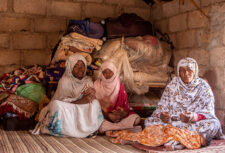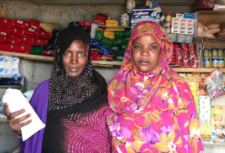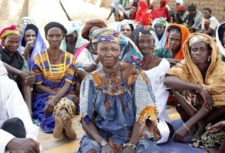Disclaimer: This article is more than 16 years old, and may not include the most up-to-date information or statistics. Please verify information with more recent sources as needed, and if you have any questions contact our Press Office.
9 August 2007
Anti-Slavery International welcomes Mauritania’s criminalisation of slavery on 8 August.
The new law, which passed with 100 per cent support in parliament, marks an historic step forward in the fight against this abuse. It makes the practice of slavery punishable by up to 10 years in prison and states that anyone supporting slavery could be imprisoned for two years.
Even though Mauritania abolished slavery in 1981, there was no law establishing it as a criminal offence.
For the law to have an effect on the lives of thousands of people across Mauritania, it is vital it is implemented and for the needs of former slaves to be met.
Anti-Slavery International and local organisations including SOS Esclaves are calling on the Government to create an independent monitoring body that can apply the law and investigate allegations of slavery. Such a body also needs to be able to mediate the release of slaves and award compensation.
The organisations are also calling for all freed slaves to receive economic and social assistance, including land, as well as access to micro credit and income generating activities, so that those leaving slavery can begin to live independent and free lives. A key priority is free education for all children of slave descent which will provide the necessary opportunities so long denied to their parents. A national campaign of awareness is critical so that the population throughout the country is made aware that slavery is now a criminal offence.
Thousands of people in Mauritania are enslaved as a result of being born into an established slave class. Although no surveys have been able to be carried out the problem is clearly significant. In rural areas, men and boys are used to herd animals while women and girls in slavery carry out heavy domestic chores. But slaves are also used in urban areas, working in any way their master demands.





